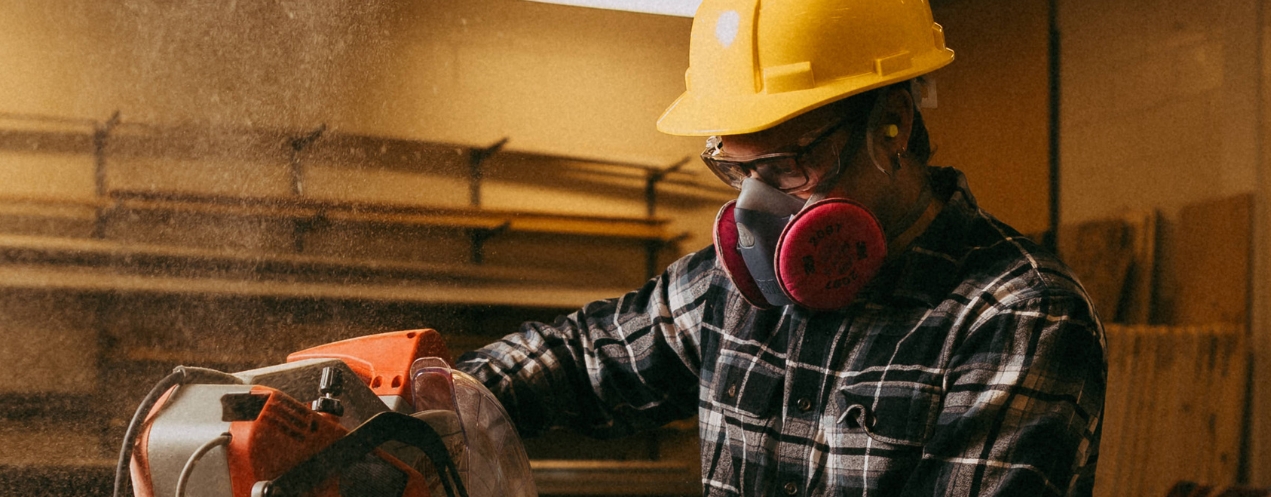Respirator requirements and costs

Respirators are personal protective equipment (PPE) devices that protect against airborne hazards. Respirators are worn securely with a tight seal over the mouth and nose or fully covering the face.
Approved, fit-tested respirators are required and must be worn for programs taking place in learning environments where airborne particles such as wood dust or fumes may be present.
You’re responsible for the cost of your fit test and the cost of your respirator. Programs listed below require respirators. View program costs:
- Aircraft Maintenance Technology - Avionics
- Aircraft Maintenance Technology - Mechanical
- Aircraft Maintenance Technician - Structures
- Auto Body and Collision Repair
- Automotive Service and Repair
- Brick and Stone Masonry
- Cabinetmaking and Woodworking Techniques
- Carpentry Certificate
- Carpentry Diploma
- Diesel Repair - Industrial and Marine
- Electro Mechanical Technician
- Heavy Duty Equipment / Truck and Transport Repair
- Heavy Duty Equipment Repair
- Industrial Mechanical
- Marine Engineering Technology
- Metal Fabrication
- Motorcycle and Power Products Repair
- Pipe Trades
- Truck and Transport Repair
- Welding
Fit testing your respirator
You are provided with information about your respirator at the beginning of your studies. A fit test will then be scheduled for you.
Fit testing is a required process where you are fitted for a respirator by a trained professional who:
- Ensures the seal on your respirator properly fits your face.
- Provides you with information and instruction on proper use of your respirator and gives recommendations on the best device for you to wear.
Facial hair
Respirators must be securely fitted with a tight, closed seal between the respirator and your skin to work properly and safely. To ensure proper performance and safety, facial hair must be removed (clean-shaven) within the seal zone.
Accommodations
- Accommodations may be made for religious or medical reasons.
- If you are seeking an accommodation, you must contact your campus Student Services team prior to your program start date. You may be responsible for the cost of an alternative respirator model.
Expectations for wearing your respirator
- When and where respirators are worn is determined by safe work procedures and differs from program to program. Your faculty or campus staff provides instruction on relevant, safe work procedures.
- You are not permitted to enter certain shops or engage in some activities without a fit-tested respirator.
- You are responsible for maintaining your respirator and following manufacturer instructions on care and storage. Proper care, maintenance and storage are important for the effectiveness of a respirator.

